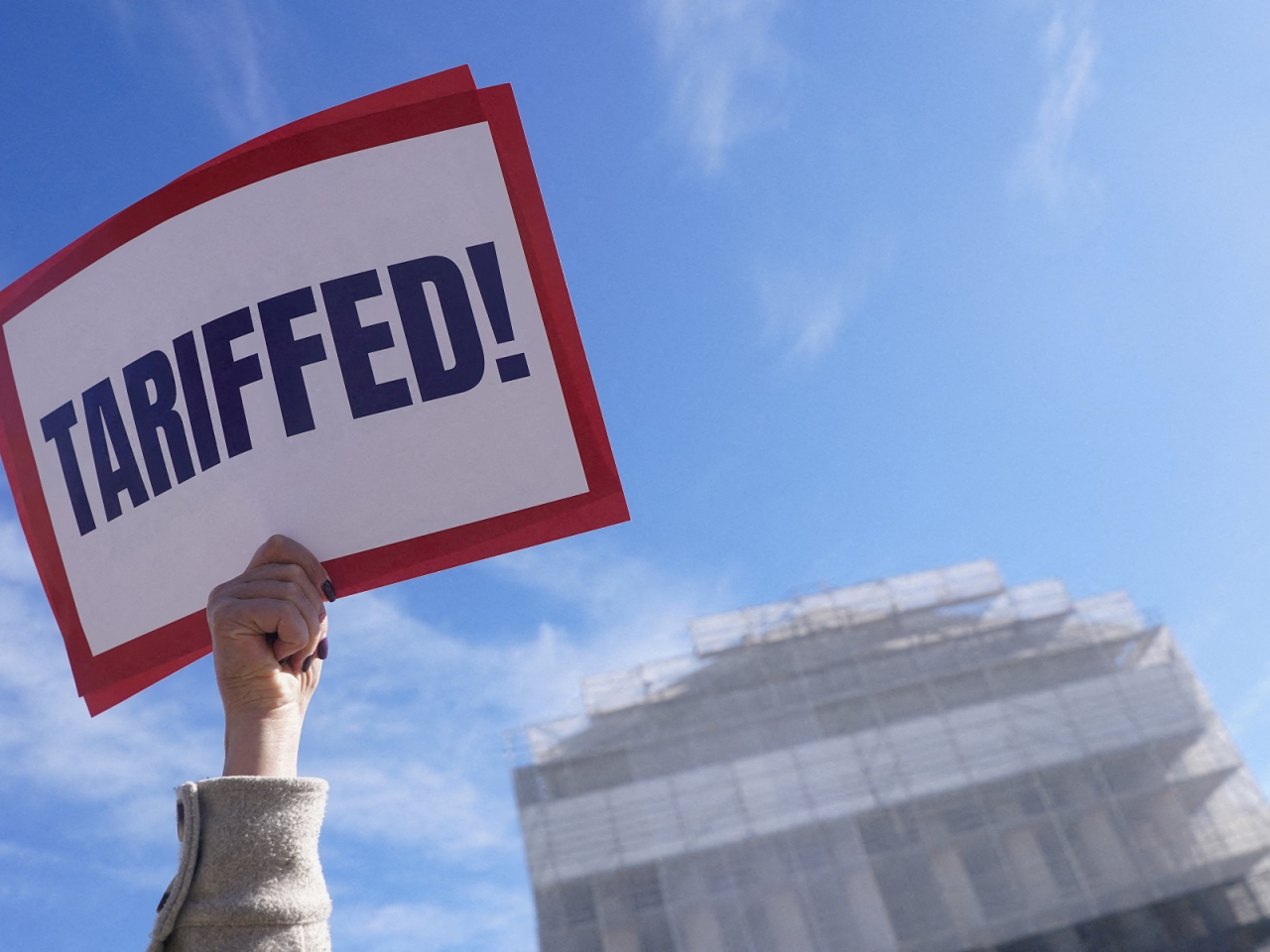US Supreme Court justices raised doubts on Wednesday over the legality of President Donald Trump's sweeping tariffs in a case with implications for the global economy that marks a major test of Trump's powers.
Conservative and liberal justices alike sharply questioned the lawyer representing Trump's administration about whether a 1977 law meant for use during national emergencies gave Trump the power he claimed to impose tariffs or whether the Republican president had intruded on the powers of Congress.
But some of the conservative justices also stressed the inherent authority of presidents in dealing with foreign countries, suggesting the court could be sharply divided in the outcome of the case.
The court has a 6-3 conservative majority. The arguments, lasting more than two and a half hours, came in appeals by the administration after lower courts ruled that Trump's unprecedented use of the law at issue to impose the tariffs exceeded his authority.
Businesses affected by the tariffs and 12 US states, most of them Democratic-led, challenged the tariffs.
Conservative Chief Justice John Roberts told US Solicitor General D John Sauer, arguing for the administration, that the tariffs are "the imposition of taxes on Americans, and that has always been the core power of Congress."
The tariffs – taxes on imported goods – could add up to trillions of dollars for the United States over the next decade. The US Constitution gives Congress the authority to issue taxes and tariffs.
Roberts suggested that the court could apply its "major questions" doctrine, which requires executive branch actions of vast economic and political significance to be clearly authorised by Congress.
"The justification is being used for a power to impose tariffs on any product, from any country, in any amount, for any length of time. I'm not suggesting it's not there, but it does seem like that's major authority, and the basis for that claim seems to be a misfit," Roberts said.
Trump had invoked the International Emergency Economic Powers Act, or IEEPA, to impose the tariffs on nearly every US trading partner. The law lets a president regulate commerce in a national emergency.
He became the first president to use IEEPA for this purpose, one of the many ways he has pushed the boundaries of executive authority since returning to office in January.
Conservative Justice Amy Coney Barrett questioned Sauer about his claim that IEEPA's language granting presidents emergency power to regulate importation encompasses tariffs.
"Can you point to any other place in the code or any other time in history where that phrase together 'regulate importation' has been used to confer tariff-imposing authority?" Barrett asked Sauer.
Liberal Justice Ketanji Brown Jackson said IEEPA was intended to limit presidential authority, not expand it.
"It's pretty clear that Congress was trying to constrain the emergency powers of the president," Jackson said.
While the Supreme Court typically takes months to issue rulings after hearing arguments, the administration has asked it to act swiftly in this case, though the timing of the decision remains unclear.
US Treasury Secretary Scott Bessent, who attended the arguments on Wednesday, said he came away from the hearing feeling "very, very optimistic."
Bessent told Fox Business Network's "Kudlow" programme he thought plaintiffs challenging Trump's use of IEEPA to justify tariffs had "almost embarrassed themselves," and he was confident the Supreme Court would reverse a lower court ruling that the tariffs were illegal.
Asked how the administration would return the large amounts of funds already collected if the Supreme Court upheld the ruling, Bessent said: "We'll cross that bridge if we come to it, but I'm confident we won't have to."





